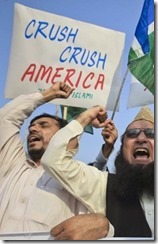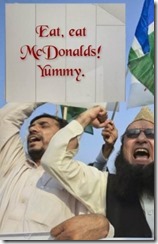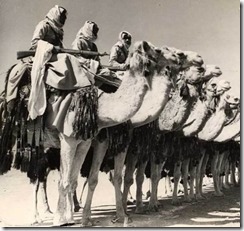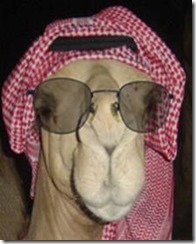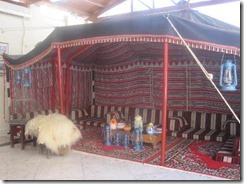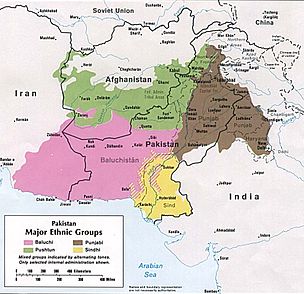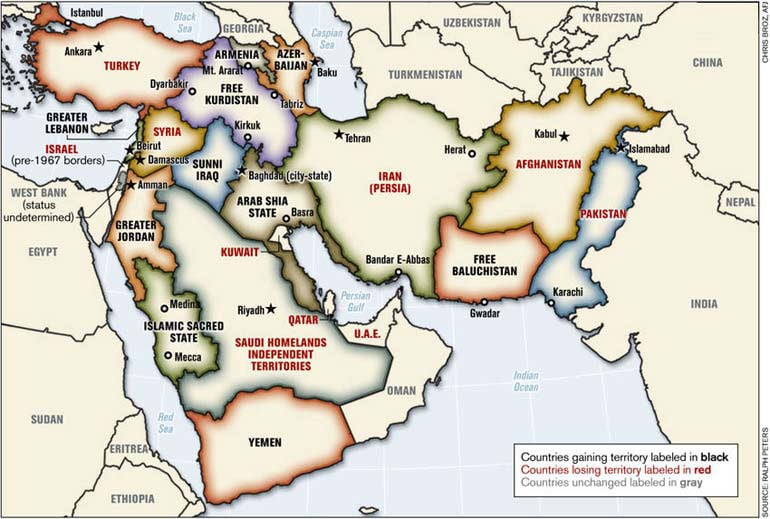Updated 2013-09-04 13:49:40
ISLAMABAD: In a daring raid, Saudi Special Forces arrested one of the most wanted extremist leaders, Abu Jarara Al-Yemeni, from a hotel located in one of Pakistan’s most popular vacation spots in Murree.
The news spread like wildfire and people were seen cursing the Pakistani government for allowing the Americans to undermine Pakistan’s sovereignty, again.
However, when it became clear that the raid was not conducted by the Americans but by the Saudis, the frowns turned into smiles and many were heard saying, ‘Jazzakallah!’
Only minutes after the raid, Pakistan’s Prime Minister appeared on state-owned television and congratulated the nation and thanked the Saudi regime for helping Pakistan in its war against terror.
Interestingly, religious parties like Jamaat-i-Islami, (JI) Jamiat Ulema-i-Islam (JUI) and some banned sectarian organisations, that had originally called a joint press conference to condemn the raid, changed their stance half-way through the conference when told that the raid was by Saudi forces and not the Americans.
JI chief was first heard lambasting Pakistan’s civilian government for letting the country’s sovereignty be violated by the Americans, but after a reporter confirmed that the raid was executed by Saudi forces, the JI chief turned towards the JUI chief and embraced him.
‘Mahshallah!’ he exclaimed. “Today is a glorious day for our Islamic republic!”
JI and JUI chiefs had earlier questioned the real identity of the man arrested from the hotel, saying that even if it was Jarara, we should be ashamed because he was a freedom fighter, conducting a liberation war against the Americans.
However, after it became clear that the arrest was made by Saudi forces, both the men then claimed that Jarara was no friend of Pakistan and that he was not even a Muslim.
In a joint statement, JI, JUI and the sectarian organisations congratulated the nation and said that they had been saying all along that the extremists were Pakistan’s greatest enemies and should be exterminated.
The statement also said that the JI and JUI (along with PTI) will continue to hold sit-ins against American drones, which were parachuting evil men like Jarara into Pakistan and violating the sovereignty of the country. For this, the statement suggested, that Ahmad Shah Abdali should be invited to invade Pakistan and defeat the Americans.
When told that Abdali died almost two hundred years ago, the religious leaders termed this to be nothing more than western propaganda.
PTI members at the conference added that Pakistan’s most prominent revolutionary and youngest nuclear physicists, Zohair Toru, was building anti-drone missiles.
Toru, who was also present at the conference, confirmed this while licking a lemon-flavored Popsicle. He said it was a very hot day and popsicles helped him concentrate.
Zohair Toru at the press conference.
However, soon things took another twist when sources suggested that the Saudis captured Jarara and handed him over to the Americans.
The Americans – who had accused Jarara for committing crimes against humanity – actually plan to use him to lead a revolt against the Syrian government that the Americans accuse of committing crimes against humanity.
After this, the chiefs of JUI, JI and the sectarian parties again changed their stance. In another joint statement, they said Jarara indeed was a great Muslim warrior. They then embraced each other and distributed Saudi dates among the gathered media personnel and asked them to pray for Jarar’s success against the evil Syrian government.
But when asked what they thought about Jarar working with the Americans and vice versa, they said they cannot answer this question because it was time for the afternoon prayers.
When asked whether they will answer the question after the prayers they said by then it will be time for the evening prayers.
When asked if they would be willing to give an answer after the evening prayers, they said by then all of them would be on their way to Saudi Arabia to perform Hajj.
Members of religious parties after being told the raid was conducted by the Americans.
Religious party leaders after being told Jarar will be used by Saudi Arabia and US in war against Syria.
Religious party leaders after being told Jarar will be used by Saudi Arabia and US in the war against Syria.
The raid
A military spokesman also held a press conference to give the media a briefing on the details of the raid.
He said the raid was executed by Saudi Special Forces who came on four helicopters from Saudi military bases in Raiwind.
The helicopters then landed on the Margala Hills in Islamabad. On the lush hills, Saudi soldiers disembarked from the copters, got on camels and rode all the way to Murree in broad daylight.
They were twice stopped at checkpoints by the Pakistani police but were allowed to cross when some Saudi soldiers promised the cops jobs in Saudi Arabia and year’s supply of Zamzam water.
An eyewitness claims the cops smiled and waved to the departing camels, cheering ‘marhaba, marhaba.’
A passerby captured this photo of the Saudi Special Forces on their way to Murree.
The camel army reached the in Murree at 11:00 am and right away rode their way into the sprawling premises.
The camels were also carrying rocket launchers, sub-machine guns, pistols, grenades and popcorn, all concealed in large ‘Dubai Duty Free’ shopping bags.
One of the items left behind by the Saudi raiding party.
The military spokesman added that although the Pakistan Army had no clue about the raid, there were a dozen or so Pakistani security personnel present at the hotel.
When asked whether these men questioned the camel riders, the spokesman said that they did see them enter the hotel but were at the time busy interrogating a 77-year-old Caucasian male whom they had arrested for smoking in a non-smoking area.
“After the Abbottabad incident, we are keeping a firm eye on Europeans and Americans,” the spokesman said.
Even though the white man turned out to be an old Polish tourist, the spokesman praised the security men’s vigilance. “Our country’s sovereignty is sacred,” he added. “And, of course, smoking is bad for health.”
According to the Pakistan’s security agencies, the Saudis then rode their camels into one of the hotel’s kitchens and fired teargas shells.
This way they smoked out the chefs, cooks and other kitchen staff out into the open. From these, a Saudi commander got hold of a fat, hairy chef with an untidy beard.
The Saudi commander looked at the chef and compared his face with a photograph he was carrying. He asked: ‘Al-Jarara?’ To which the chef was reported to have said: “No, al-chicken jalfrezi. Also make very tasty mutton kebabs.”
The commander then asked, ‘Al-Yemeni?’, to which the chef said, ‘Yes make Yamani tikka too. You want?’
A photo of one of the raiders who entered the hotel disguised as a friendly camel.
A reporter asked the military spokesman whether the Pakistani security men present at the hotel witnessed the operation. The spokesman answered in the affirmative but said they didn’t take any action after confirming that Pakistan’s sovereignty was not being violated.
The reporter then asked how the security men determined that Pakistan’s sovereignty was not being violated. Answering this, the spokesman said that since the camel riders were speaking Arabic there was thus no reason for the security men to charge them for violating Pakistan’s sovereignty.
This statement made the media personnel at the press conference very happy and they began applauding and raising emotional slogans praising Pakistan, Ziaul Haq and palm trees.
Soon after the announcement that Al-Jarara was arrested by Saudi forces, the country’s private TV channels became animated. One famous TV talk-show host actually decided to host his show in a Bedouin tent. And instead of a chair, he sat on a camel.
Set of a TV talk show held on a local channel to discuss the Saudi raid.
Though most of his guests — that included prominent ex-generals, clergymen and strategic analysts — praised the operation and heaped scorn and then praise at Al-Jarara, there was one guest, a small-time journalist who disagreed with the panelists.
He asked how a wanted man like Jarara was able to live in Pakistan undetected and that too while working as a chef in a hotel. He also said that Jarara had also been appearing on various cooking shows as a chef on TV food channels.
An alleged shot of Al-Jarara on a Pakistani food channel. Apparently, in this particular episode, he taught viewers how to cook biryani.
To this, the host snubbed the journalist telling him that he was asking irrelevant questions.
‘But before this raid, everyone was accusing the USA!’ the journalist protested.
This made the host angry and he slapped the journalist. He threatened the journalist by saying that he would lodge a case against him in accordance with the Islamic hudood ordinance.
The journalist responded by saying that the Saudis had violated Pakistan’s sovereignty. Hearing this, the host slapped the journalist again, saying he will get him booked for blasphemy.
At the end of the show, the host and the panelists set fire to a Guatemalan flag and sang the Pakistani national anthem in Arabic. Then, after handing over the treacherous journalist to the authorities, they proceeded to Saudi Arabia to perform Hajj.
However, they were soon deported by the Saudi regime for violating Saudi sovereignty.
American and Israeli officials welcoming the induction of Al-Jarara into the fold of the Syrian rebels.



